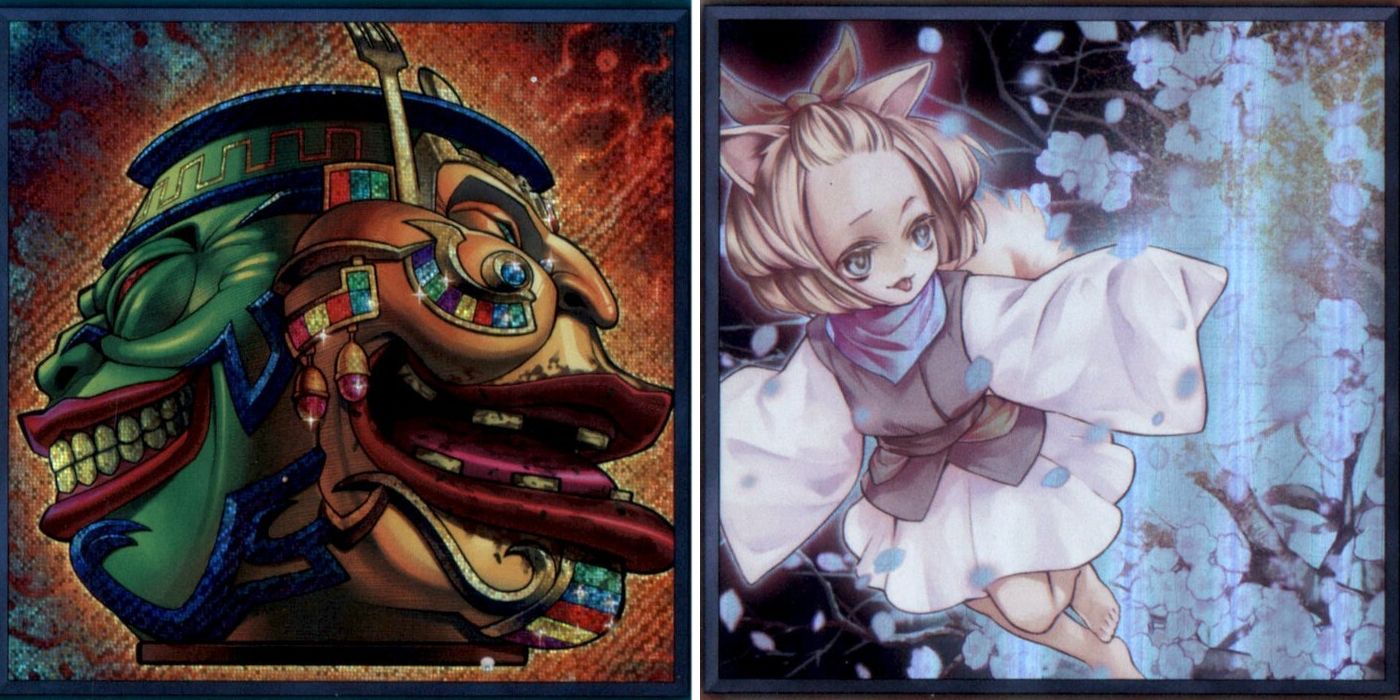
For years, Yu-Gi-Oh! card game fans have long awaited an official Yu-Gi-Oh! simulation game from Konami. Fans previously had to rely on well-made online clients such as DuelingBook. However, the wait is finally over! In January 2022, Konami released their official free-to-play Yu-Gi-Oh! simulator titled Yu-Gi-Oh! Master Duel.
While Master Duel is in its infancy, and still may not fully draw in veteran players who have grown accustomed to other Yu-Gi-Oh! simulators and what they offer, Master Duel is a fantastic way for new and returning players to try out the current iteration of the game without having to break the bank to build a real-life deck. With over 10,000 cards, it can get a bit daunting to know what cards to pursue first. Here are some easy recommendations of Yu-Gi-Oh! staples that can boost almost any deck.
10 Finding The Right Pot Card Can Boost A Deck's Consistency
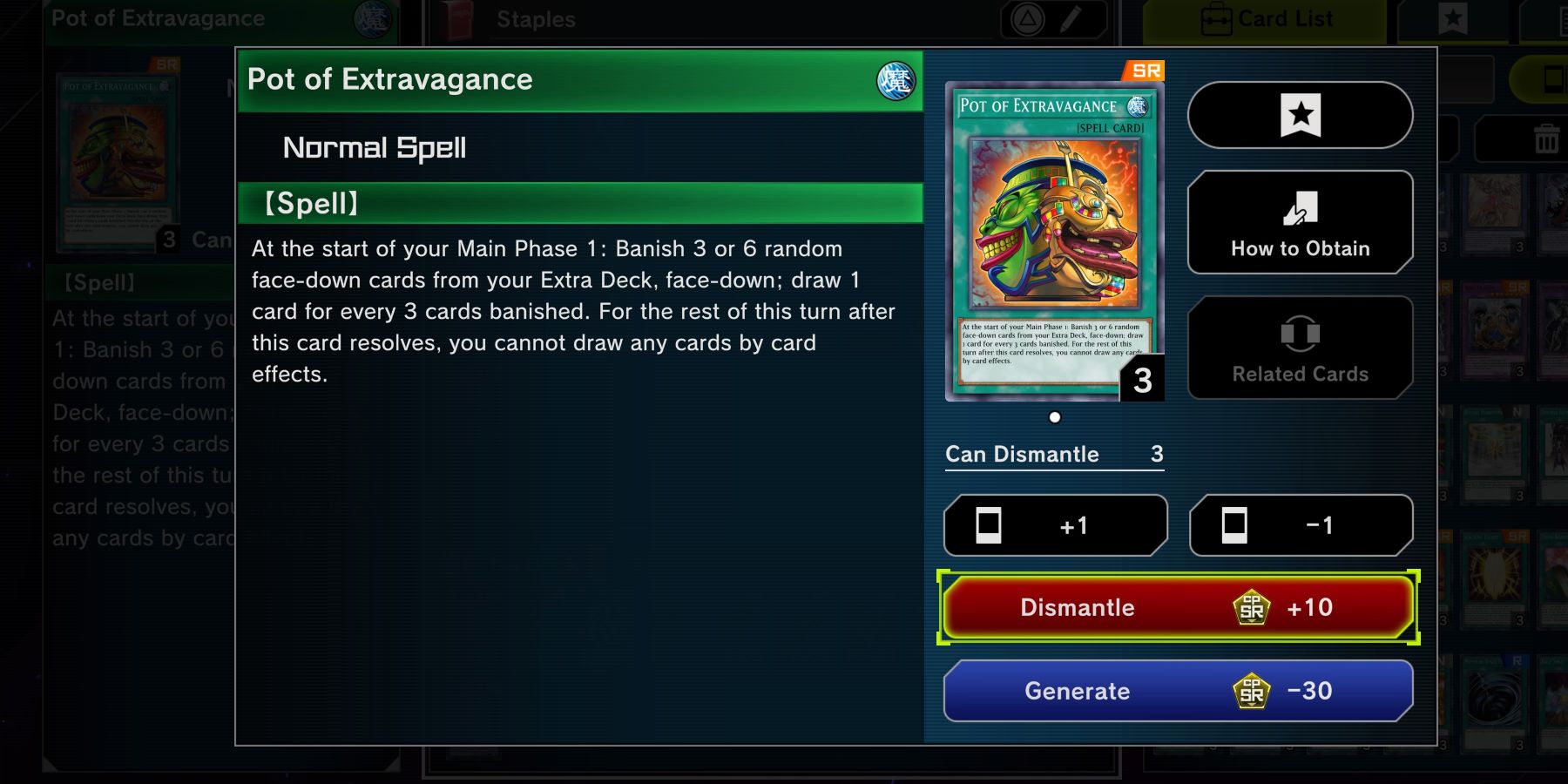
It's worth exploring the many different Pot cards to see what each of them does. While the iconic Pot of Greed is banned, Pot of Extravagance can allow a player to draw one or two cards depending on how many cards from the Extra Deck they banish. For a similar cost, a player could play Pot of Prosperity to look at the top cards in their deck (depending on how many cards they banished) and pick one card to add to their hand. However, the damage the opposing player receives is halved for the rest of the turn.
For those who need their Extra Deck, they can use Pot of Desires to banish the top ten cards of their Main Deck to draw two cards, which can be extremely helpful for a deck that utilizes the Banished Zone. Pot of Avarice and Pot of Duality are also two Pot cards worthy of looking at depending on the strategy of the deck.
9 Maxx "C" Is One Of The Most Controversial Cards Ever Created
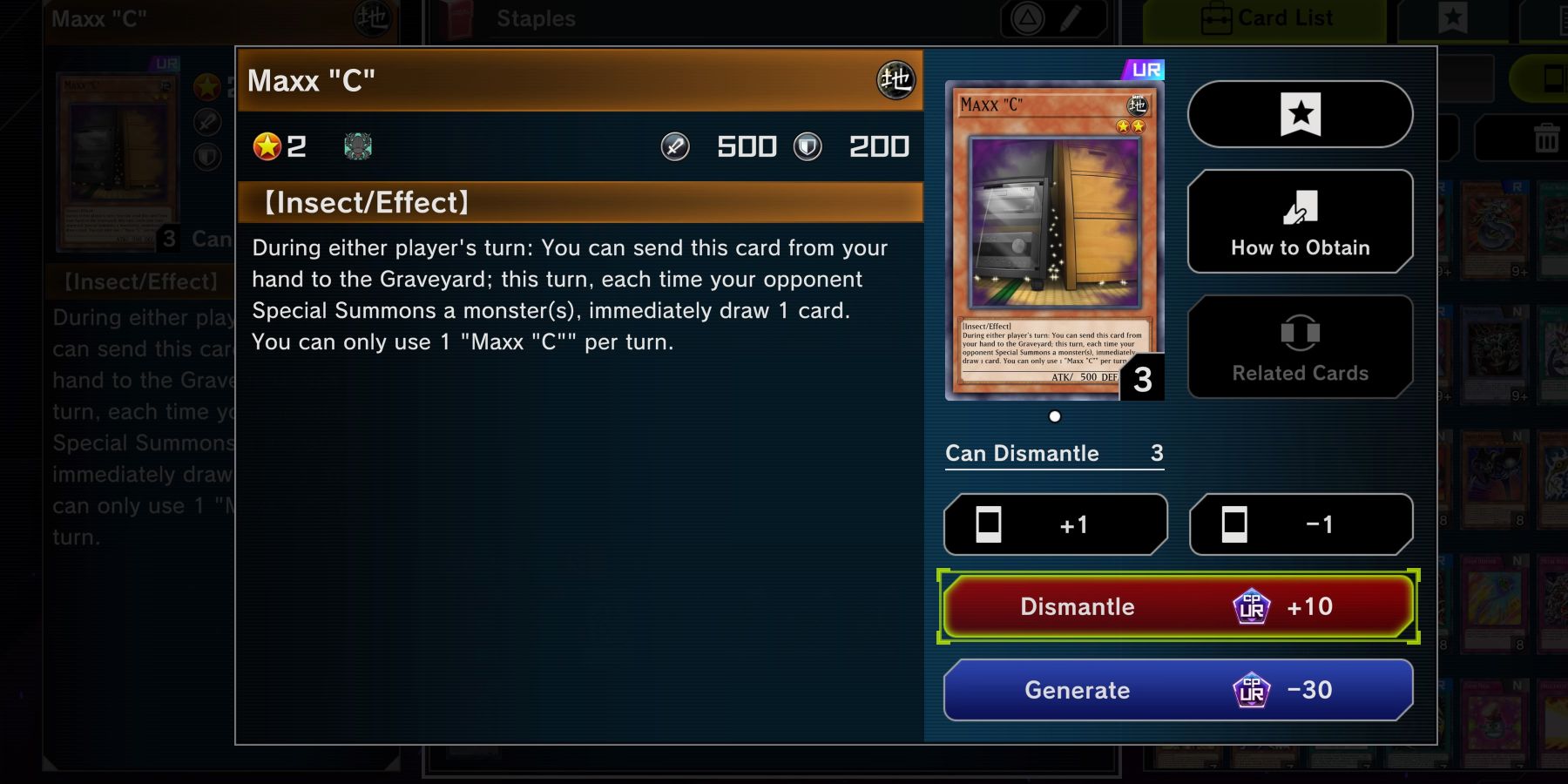
No card can spark more of a debate in the Yu-Gi-Oh! community than Maxx "C." Maxx "C" is a Monster card that can be discarded from their hand and for the rest of that turn, if the opposing player Special Summons, the player who discarded Maxx "C" can draw a card. That's not a one-time thing. Someone playing a combo-heavy deck will have to decide whether to stop their combo or allow the Maxx "C" discarder to keep drawing cards.
If that sounds toxic, then you wouldn't be alone. Maxx "C" is currently Forbidden (banned) in the TCG ruleset, which accounts for regions outside of Asia. It is, however, unlimited in the Asian region OCG. A variation of the OCG's Forbidden list is what Master Duel currently uses at this time.
8 Ash Blossom & Joyous Spring Is The Most Prominent Hand Trap
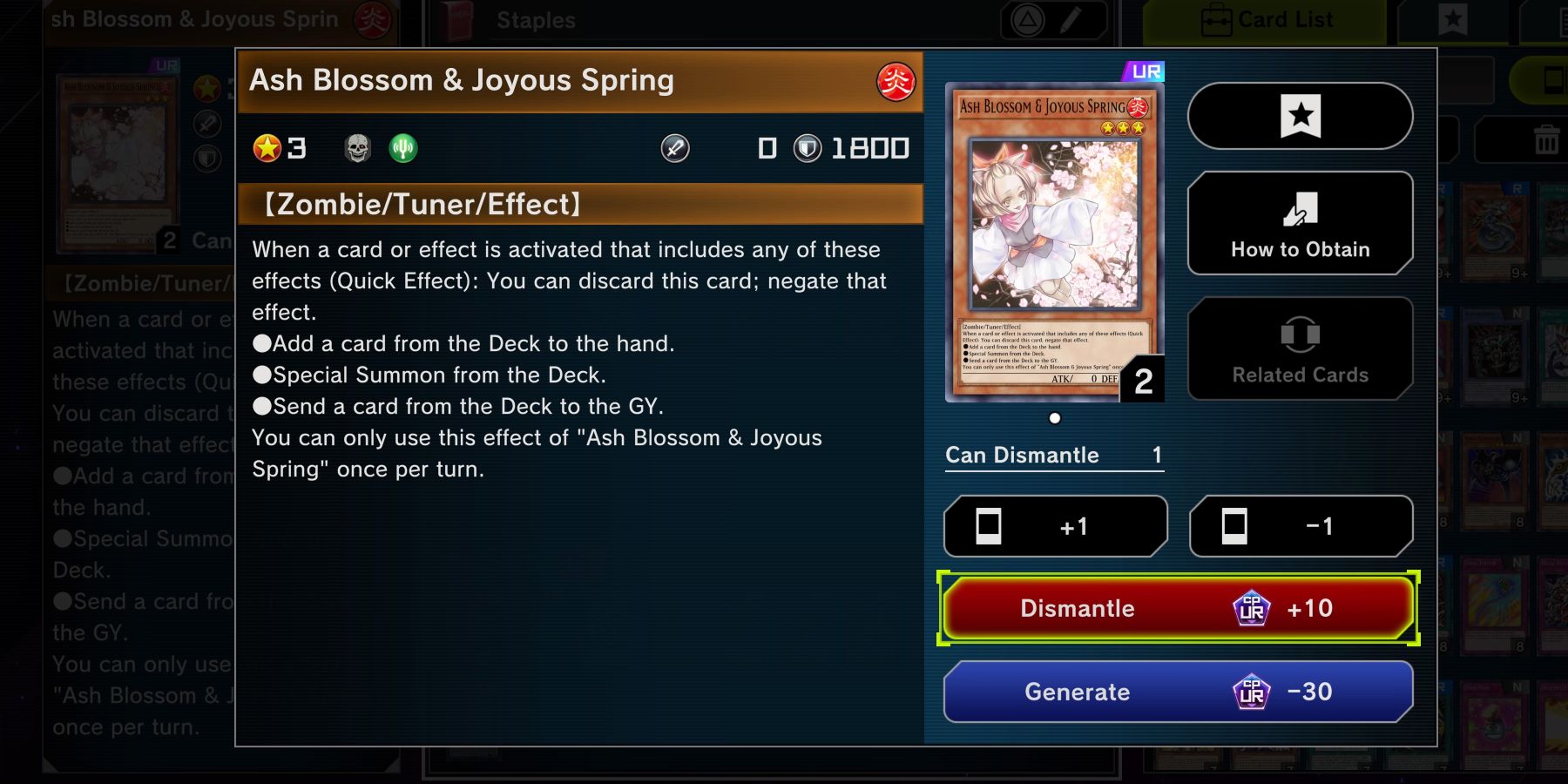
With how combo-heavy modern Yu-Gi-Oh! gets, hand traps are a necessary evil. Hand traps are cards that can be discarded from hand, like Maxx "C," that can prevent the opposing player from resolving a specific action. One hand trap that sees a lot of play is Ash Blossom & Joyous Spring, one of a series of "Ghost Girl" hand traps.
Ash Blossom is a Monster card that can be discarded to negate one of three effects: adding a card from the deck to hand, Special Summon from the deck, or sending a card from the deck to the Graveyard. While Ash Blossom has a once-per-turn effect, it is powerful enough to stop many decks dead in their tracks, making Ash Blossom a must-own.
7 Nibiru, The Primal Being Is A Great Way To Quickly Turn The Tide
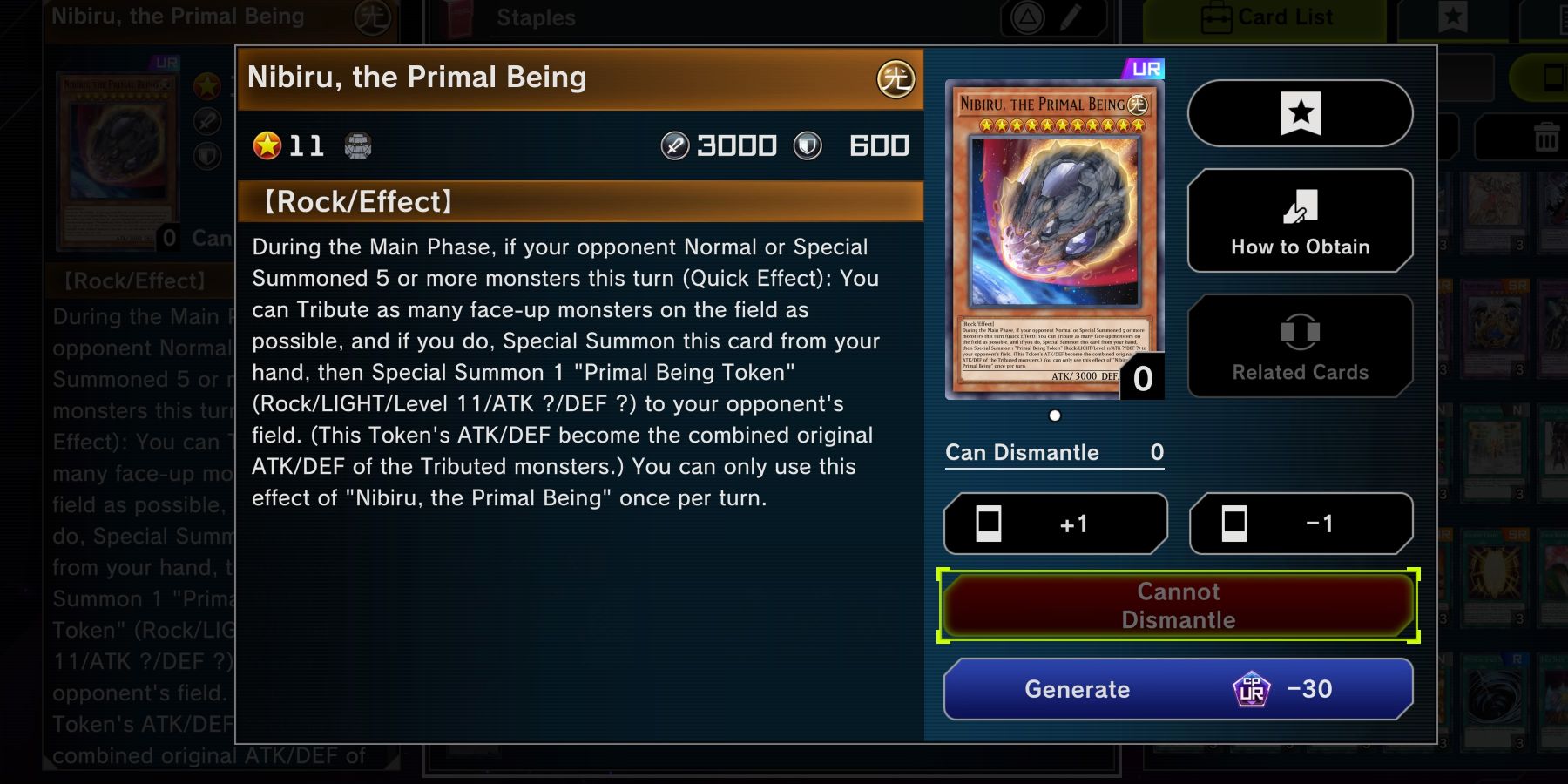
Nibiru, The Primal Being is a Monster card that is a perfect way to slow down an opposing player's combo while also clogging their side of the field. Nibiru is activated from the hand, much like Maxx "C" and Ash Blossom, when an opponent Normal or Special Summons five or more Monsters in a turn. A player can Tribute as many face-up Monsters as possible and Special Summon Nibiru. The Nibiru player can place a Token on the opposing player's field while also having a 3000 Attack Monster on their own side of the field. The Token gains attack based on the Attack of the Monsters used to Tribute Summon Nibiru.
6 Afraid Of Maxx "C" And Ash Blossom? Give Crossout Designator A Look
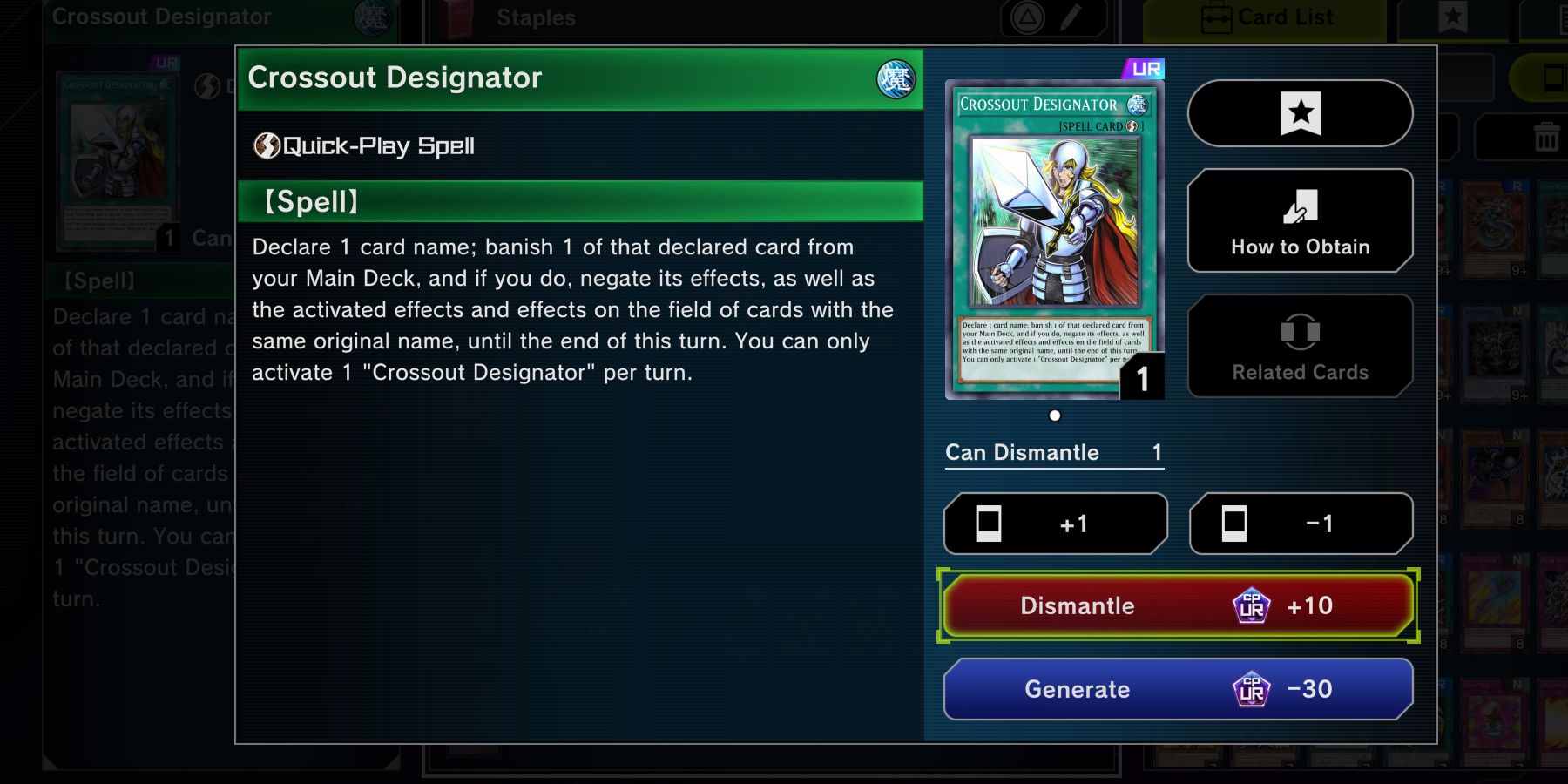
Crossout Designator is a Spell card that allows a player to name one card and banish one of that card from their deck. If they do, the opponent cannot use that card for the rest of their turn (or use its effects if it's already been activated). So, banishing a Maxx "C" would prevent the opposing player from activating their own Maxx "C" for that turn.
Crossout Designator is a fairly new release for the TCG ruleset, but it hasn't gotten much play with Maxx "C" being banned. If Maxx "C" were to ever be unbanned in the TCG, expect Crossout Designator to be played a lot more (and the cost of the card to skyrocket).
5 Called By The Grave Is Another Way To Get Around Hand Traps
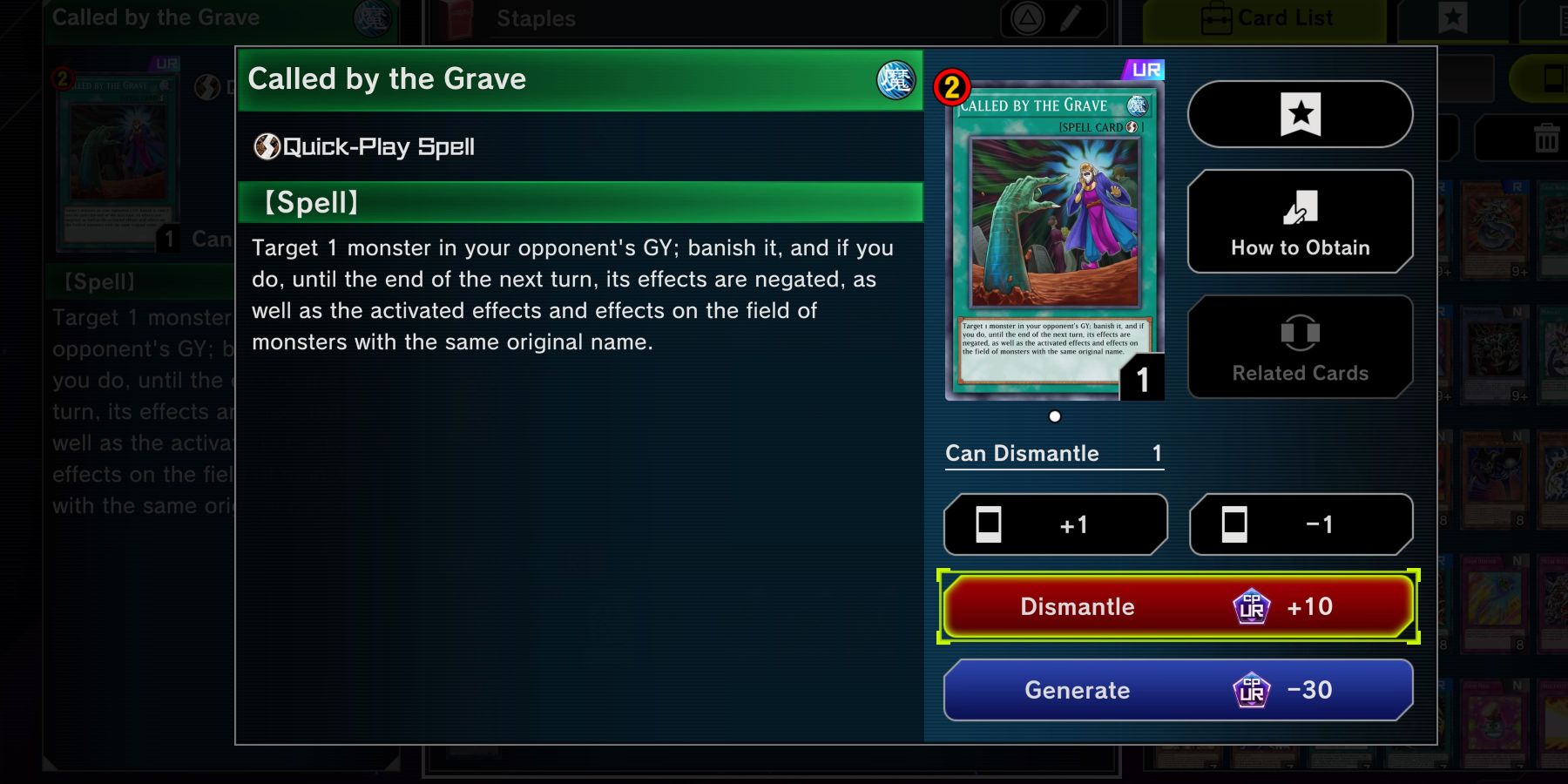
Called by the Grave is a Spell card that can target one monster from the opponent's Graveyard, banish it, and prevent the opponent from using that Monster's effects for the rest of the turn.
Both Called by the Grave and Crossout Designator are Quick-Play Spells, which means they can be activated from hand (on their turn) or from the field (on either player's turn) in response to an opposing action. Using it in response to an opponent using Ash Blossom can effectively negate its activation. This is also extremely useful against decks that utilize a Graveyard strategy.
4 Infinite Impermanence Is One Of The Few Trap Cards That Is Considered A Staple
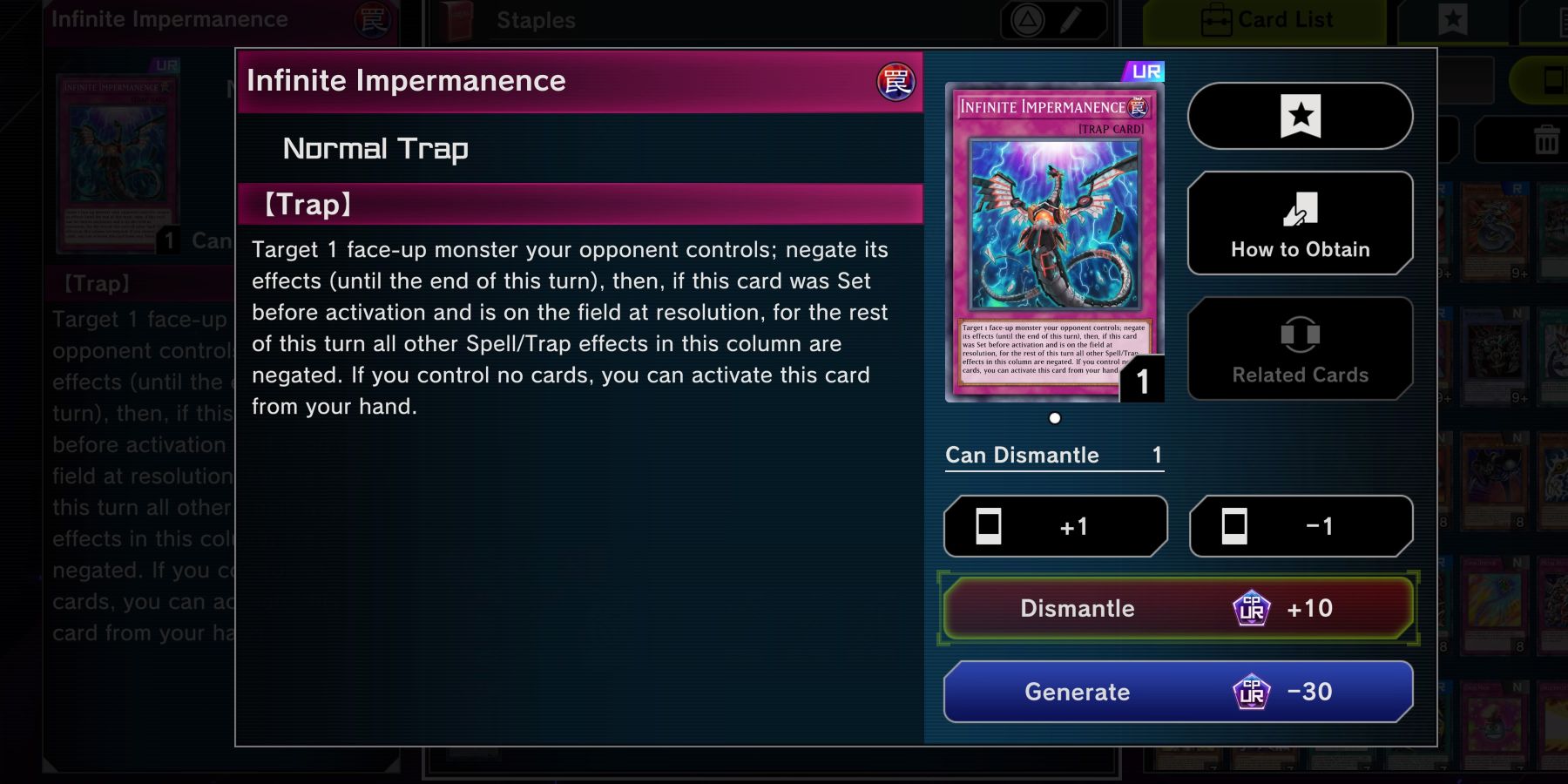
Infinite Impermanence is a very flexible card as, while it's a Trap card, it can be played from the hand if that player has no other cards on the field. The general effect of Infinite Impermanence is a simple one: for the rest of the turn, target an opposing Monster and negate its effects.
Infinite Impermanence has also a secondary effect if it was set prior to activation (as opposed to activated from hand) where it can also negate any Spell or Trap cards within that column of the game board. This requires players to be mindful of where they set and play their Spell and Trap cards to avoid Infinite Impermanence.
3 Lightning Storm Is A Good Way To Clear Out Pesky Monsters, Spells, Or Traps
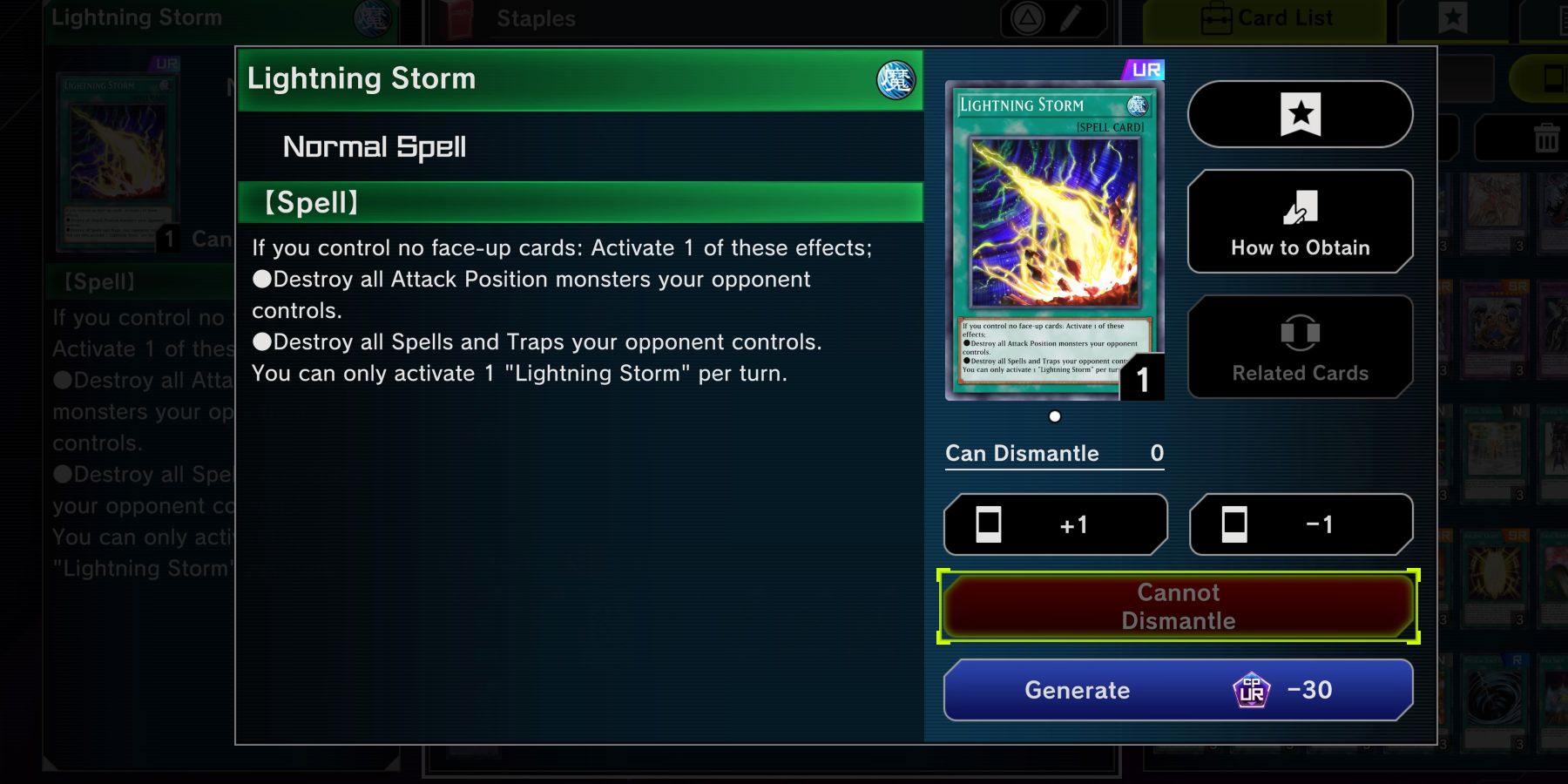
Lightning Storm is a versatile card in that it can handle Monsters, Spells, or Trap cards. To activate Lightning Storm, the player will need to have no face-up cards on the field, which is an easy requirement to meet if that player is going second in a duel. From there, the player can choose one of two effects. The first is to destroy all opposing players' Attack positioned Monster(s), and the second is to destroy all of the opposing player's Spell and Trap cards (these don't have to be face-up). This is extremely useful to combat an opponent's strong board and even the playing field.
2 Forbidden Droplet Can Greatly Weaken A Strong Monster
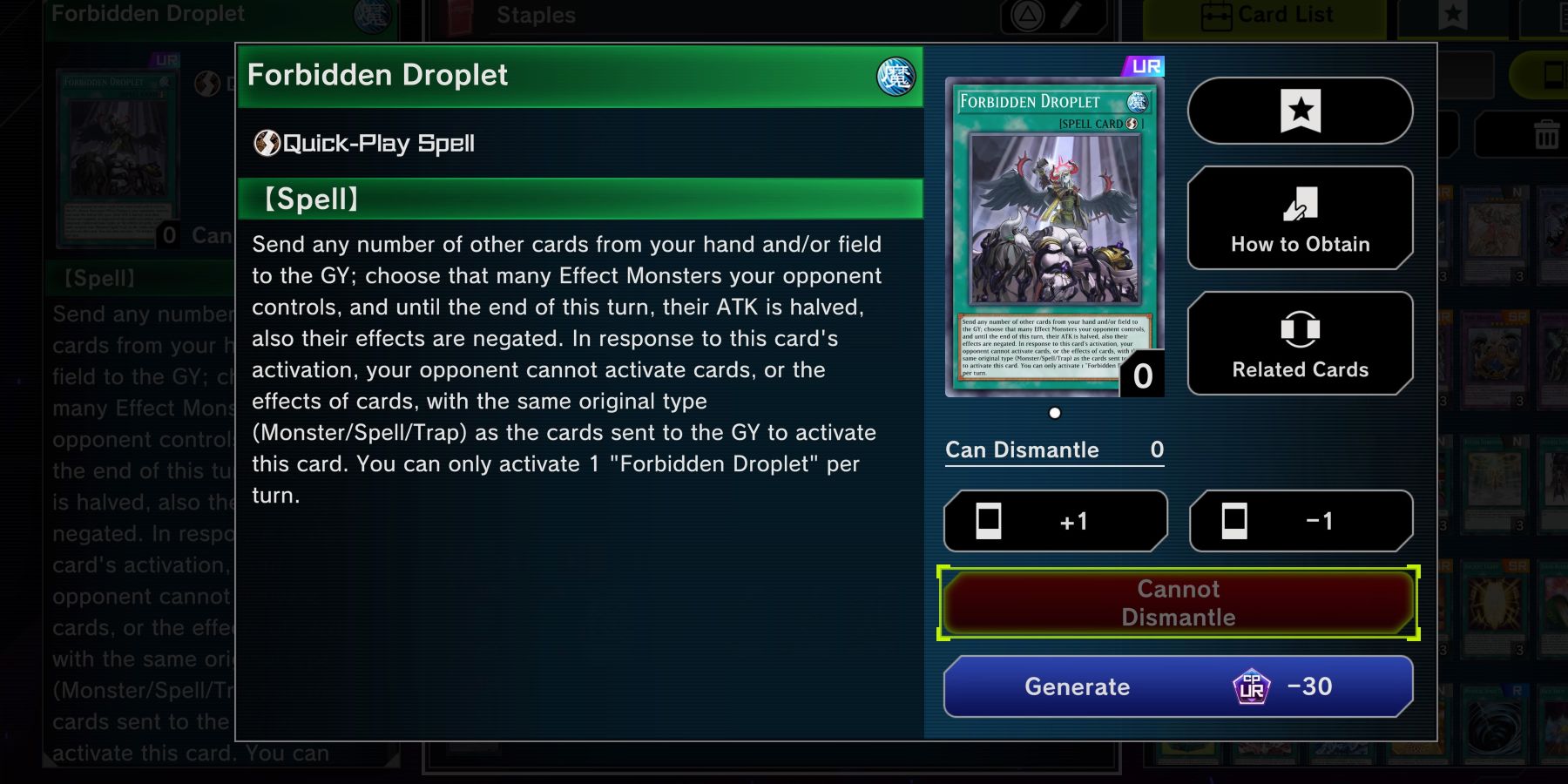
Forbidden Droplet is a Quick-Play Spell card that, like Lightning Storm, does a great job at handling an opposing player's strong board. By playing Forbidden Droplet, a player must banish cards from their hand or field. For as many cards as they banish, they can choose that many opposing players' Monsters and negate those Monsters' effects while also cutting their Attack power in half.
Not only can a player get around a strong Monster's effects, but the player now also has a chance to Attack (and destroy) that Monster, ridding that player of an annoying obstacle en route to potential victory.
1 Triple Tactics Talent Is One Of The Most Versatile Cards In All Of Yu-Gi-Oh!
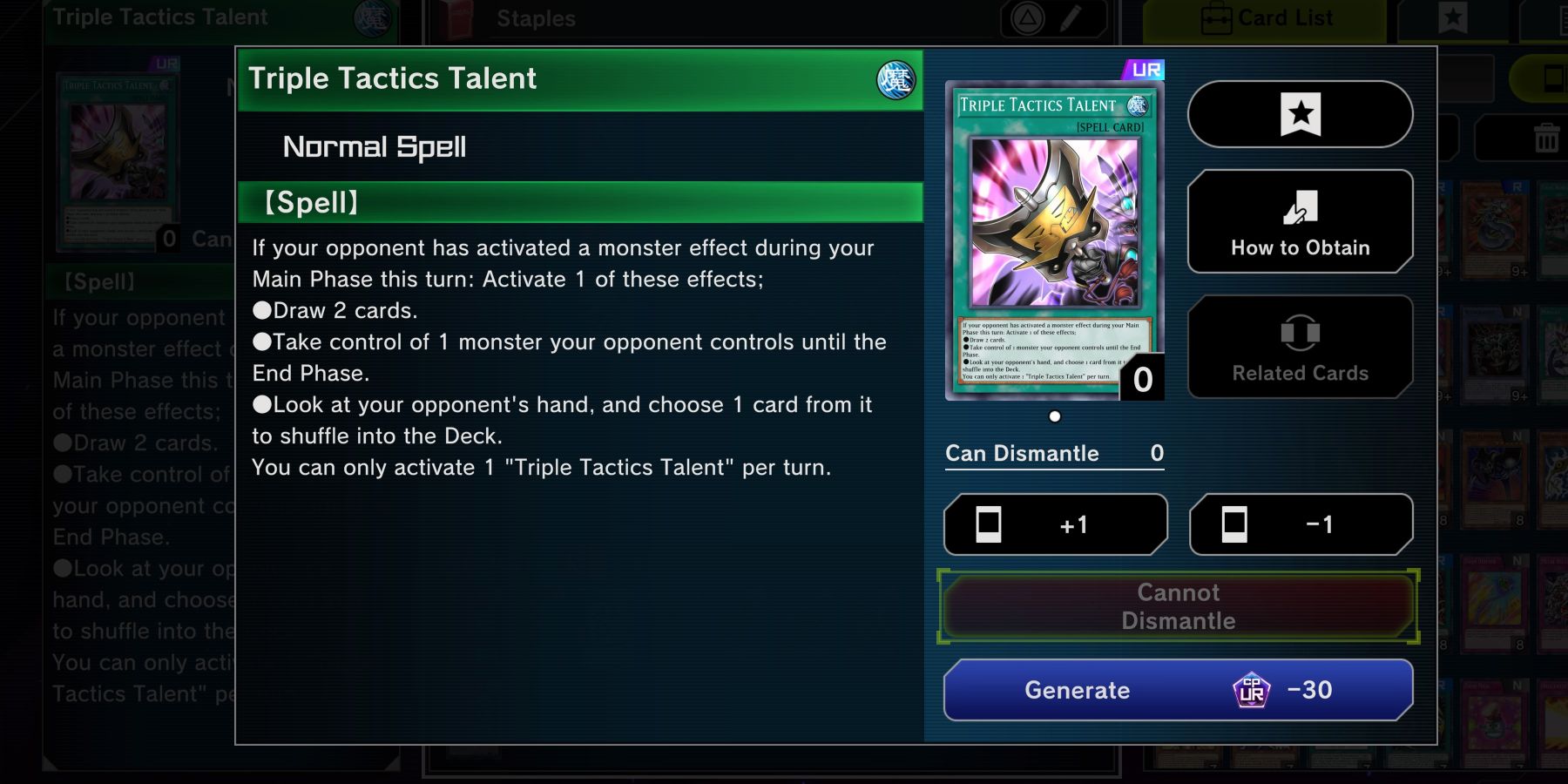
Triple Tactics Talent is a Spell card that fits almost any scenario. A player can play Triple Tactics Talent on their turn when an opposing player has already activated a Monster's effect during the Main Phase of that turn.
By doing so, a player can activate one of three effects: draw two cards, take control of an opposing player's Monster for the rest of the turn, or look at an opposing player's hand and shuffle one card from that hand in the opposing player's deck. Each of these effects are extremely powerful on their own, but having all three available on one card makes Triple Tactics Talent one of the most powerful cards in Yu-Gi-Oh!
Source: Trendz OH
No comments:
Post a Comment